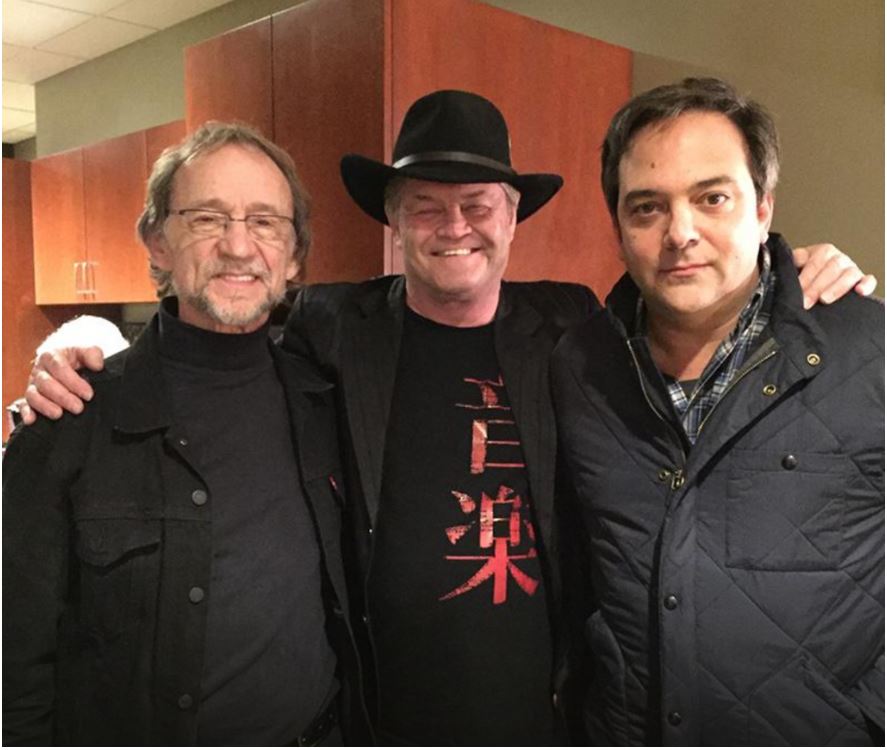
For over half a century, Micky Dolenz has been a symbol of joy, laughter, and music. Best known as the drummer and lead vocalist of the legendary band The Monkees, Dolenz’s timeless hits like “I’m a Believer” and “Daydream Believer” brought light and happiness to millions of fans around the world. Yet, in a rare and unguarded moment this week, Dolenz stepped away from his usual cheerful persona to deliver a raw, emotional message about a troubling trend in today’s digital culture.
In a heartfelt statement, Dolenz condemned what he described as a “disturbing new trend” online: people expressing joy or amusement at the misfortune of others. Speaking with sincerity and a mixture of sadness and disbelief, Dolenz said, “It’s heartbreaking. To see people cheer when families are grieving, to see joy expressed at the loss of human life — that’s not just disturbing. That’s inhuman.”
The Outpouring of Support From Fans Worldwide
Dolenz’s message quickly went viral, sparking an immediate wave of conversation across social media platforms. Fans from different generations, including those who grew up with The Monkees and younger audiences discovering Dolenz through interviews and anniversary projects, rallied behind him. Many shared personal stories and experiences, reflecting their own frustration and sorrow at the rising cruelty and insensitivity often found online.
One fan wrote, “Micky has lifted us with laughter and music for decades. Now, it’s our turn to stand with him in calling for kindness and empathy.” Another added, “He’s right. Compassion is becoming rare, and our world is poorer for it.” The global response highlighted not only the respect and love fans have for Dolenz but also a shared concern about the state of online interactions.
A Personal Plea From Someone Who Understands Loss
For Dolenz, this concern is deeply personal. Over the years, he has endured the loss of his bandmates — Davy Jones, Peter Tork, and Michael Nesmith — and has navigated the complex mix of public grief and private mourning. Having experienced profound loss firsthand, Dolenz is uniquely aware of the human pain behind news stories and social media posts.
This is what makes his statement so powerful: it’s not the carefully rehearsed words of a performer but the raw plea of someone who has seen humanity at both its best and worst. Dolenz has witnessed the unifying power of music — audiences singing together in harmony, communities coming together to celebrate joy — and now fears that digital culture has given way to a darker side of human behavior.
The Larger Conversation About Digital Culture
Dolenz’s words arrive at a time when the digital landscape is constantly evolving. In an age of instant news and viral trends, it’s easier than ever for individuals to dehumanize others and respond to tragedy with ridicule. Cultural commentators have framed his message as part of a larger conversation about empathy and kindness online. His appeal challenges ordinary people to reflect on their own behavior and consider the real-world impact of their digital interactions.
This dialogue is essential. Online cruelty may seem trivial to some, but its effects are very real. Families in mourning, individuals facing personal hardship, and communities dealing with collective trauma often encounter callous commentary that deepens their suffering. Dolenz’s plea serves as a reminder that even small acts of kindness can counterbalance the pervasive negativity in online spaces.
Why Micky Dolenz’s Message Resonates
The resonance of Dolenz’s statement comes from his legacy. As a musician whose career has always celebrated joy and connection, his warning about the decline of compassion carries weight. If someone whose voice symbolizes optimism and hope perceives a moral crisis in our digital behavior, it becomes impossible to ignore.
Furthermore, Dolenz’s credibility is amplified by his authenticity. Unlike political figures or media personalities, Dolenz speaks from a place of lived experience. He is not commenting as an observer but as someone who has felt the sting of loss and witnessed humanity’s capacity for both kindness and cruelty. His words remind us that behind every headline and viral post are real people, each carrying their own struggles.
Lessons in Empathy and Humanity
Dolenz’s statement is not only a critique but also a call to action. It invites audiences to consider the value of compassion in everyday life, both online and offline. In a world dominated by digital communication, the need for empathy has never been more urgent. Taking a moment to acknowledge the humanity of others — whether through a thoughtful comment, a supportive message, or simply refraining from spreading negativity — can help restore a sense of connection and decency in society.
His message also underscores the importance of community. Throughout his career, Dolenz has demonstrated how shared experiences — concerts, music, and laughter — can unite people. The same principle applies to digital spaces: online communities thrive when respect, kindness, and understanding are prioritized over mockery and cruelty.
A Legacy of Joy, Now Advocating for Humanity
Micky Dolenz’s career has always been defined by his ability to lift spirits. From his iconic days with The Monkees to recent projects and interviews, he has consistently inspired joy. Now, in this emotional moment, he uses his voice for a different purpose: to defend empathy and humanity against the corrosive tendencies of modern online culture.
His plea is a sobering reminder of the fragile nature of compassion. While music and laughter bring people together, cruelty and indifference can easily tear communities apart. By speaking out, Dolenz encourages a collective reflection on how we treat each other, especially in digital spaces where anonymity can sometimes foster callous behavior.
Conclusion: Protecting Compassion in the Digital Era
Micky Dolenz has once again shown the power of his voice — not to entertain this time, but to awaken a sense of moral responsibility. His emotional and unguarded plea challenges us all to prioritize empathy, respect, and kindness in a world that often seems to reward the opposite. In standing against the celebration of tragedy, Dolenz reminds us that our humanity is a shared treasure, one that deserves protection and nurturing.
As fans and followers continue to engage with his message, the hope is that his words inspire not only awareness but action. In honoring Dolenz’s legacy of joy, we are called to preserve something equally precious: the dignity, empathy, and compassion that form the core of human connection. By responding with kindness rather than cruelty, we honor both his message and the enduring value of our shared humanity.
